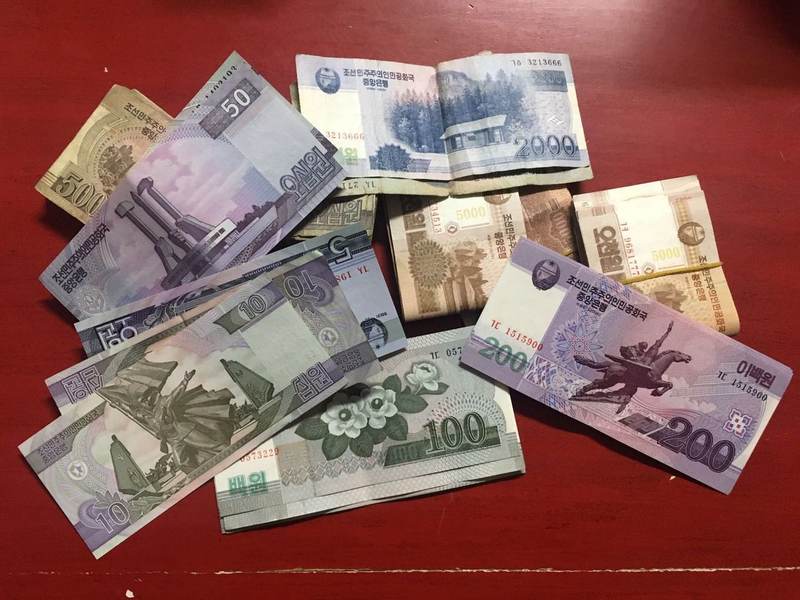The North Korean won to U.S. dollar exchange rate has surged to record levels, further exacerbating the economic hardship faced by citizens as food prices continue to rise.
According to Daily NK on September 26, the market exchange rate for the won against the dollar in Pyongyang as of September 15 was 16,100 won per dollar, while in Sinuiju, it reached 16,200 won. Earlier this month, on September 2, the exchange rate had climbed even higher, with Pyongyang recording 16,500 won and Sinuiju 16,700 won per dollar.
Pyongyang’s market rate has stayed above the 16,000 won mark for more than two weeks now, representing a 94% increase compared to January this year.

Cho Chung-hee, an expert on the North Korean economy at Good Farmers Research Institute, noted that there were even reports of the exchange rate reaching 18,000 won per dollar in the border city of Hyesan, further highlighting the extreme levels of the current exchange rate in North Korea.
The won-yuan exchange rate has also seen a significant rise, reaching 1,900 won in Pyongyang as of September 15, a 52% increase from the beginning of the year. Before the COVID-19 pandemic, the North Korean won to U.S. dollar exchange rate hovered around 8,000 won.
However, after North Korea closed its borders and restricted trade, foreign currency demand decreased, driving the exchange rate down to as low as 4,000 won by the end of 2021. The rapid surge began after border restrictions were lifted, with the exchange rate jumping from just over 9,000 won in late May to more than 14,000 won within a month.
Dr. Cho Han-beom of the Korea Institute for National Unification, a South Korean government-affiliated research institution, told VOA on September 26 that North Korea’s economy, which had been insulated from the global market during the border closure, is now revealing its vulnerabilities as trade resumes, driving the sudden spike in exchange rates.
Food prices have also skyrocketed. According to Daily NK, as of September 15, the price of rice in Pyongyang’s markets reached 6,300 won per kilogram, while in Sinuiju and Hyesan, prices hit 6,400 won and 6,580 won, respectively, marking all-time highs for this time of year.
Corn prices have also risen sharply, with prices ranging between 3,200 to 3,300 won per kilogram, a 6 to 7% increase compared to early September.
BY YOUNGNAM KIM [kim.youngnam@koreadaily.com]





